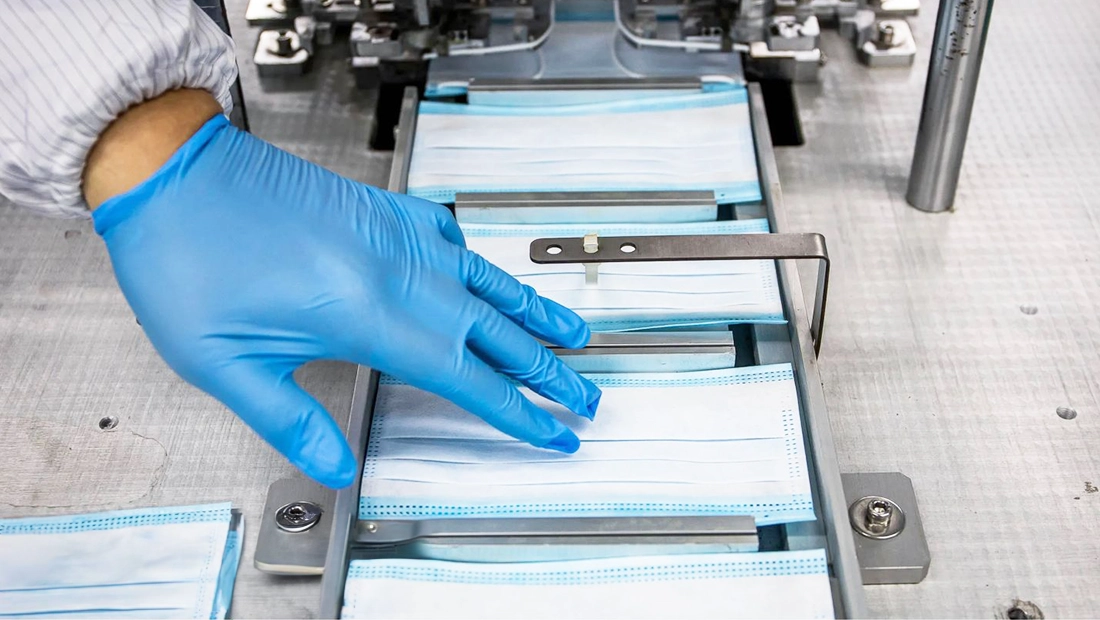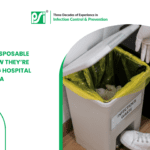Behind the Scenes: The Journey of a Face Mask Manufacturer
The face mask manufacturing industry has undergone a remarkable transformation in recent years, driven by global health concerns and the need for protective gear. Face masks are now an integral part of our daily lives, and behind their ubiquity lies a thriving manufacturing sector. From medical-grade N95 respirators to fashionable cloth masks, the industry has diversified to cater to various needs. These manufacturers play a vital role in public health, providing essential protective equipment. This blog explores the dynamic world of face mask production, offering insights into the manufacturing processes, quality control, sustainability efforts, and the pivotal role they’ve played during the COVID-19 pandemic. Discover more at PSIDispo.
Exploring the different types of face masks
- N95 Respirators: High-filtration masks designed to protect against airborne particles.
- Surgical Masks: Loose-fitting, disposable masks used in medical settings to protect against splashes and sprays.
- Cloth Masks: Reusable and available in various designs, offering basic protection.
- KN95 Masks: Similar to N95s, but conforms to Chinese standards.
- Face Shields: Transparent plastic shields covering the face to block splashes.
- FFP Masks: Common in Europe, they have varying levels of filtration.
- R95, P100, and N100 Masks: Specialty masks offer different degrees of protection.
- Homemade Masks: Crafted from household materials to provide basic coverage.
- Respirator Masks: Offer enhanced filtration and are often used in industrial settings.
- Valved Masks: Contain an exhalation valve for easier breathing, but may not protect others from the wearer’s exhalation.
Each type has specific purposes and varying levels of protection.
The process of face mask production

Face mask production is a meticulous process, typically initiated by a face mask manufacturer. It involves several key steps to ensure the production of high-quality masks. First, the raw materials, which include various layers of fabric, elastic bands, and nose wires, are sourced. These materials are then carefully inspected for quality. Next, the fabrics are cut into specific shapes and sizes. Layers are stacked accordingly, and the elastic bands and nose wires are added. The layers are then ultrasonically welded together or sewn, creating the mask’s structure. Finally, quality control checks are performed to verify the masks meet safety standards before they are packaged and distributed for use.
Quality control measures in manufacturing.
Quality control in face mask manufacturing is a paramount factor in ensuring that the end products meet safety standards and provide effective protection. Manufacturers implement rigorous quality control measures throughout the production process to guarantee the reliability of their masks. This involves thorough testing and inspection at various stages, from raw material evaluation to the final product. Key aspects of quality control in face mask manufacturing include:
- Raw Material Assessment: Manufacturers carefully examine the quality of materials, such as non-woven fabrics and elastic ear loops, to ensure they meet standards for safety and filtration.
- Production Process Supervision: Continuous monitoring of the manufacturing process to prevent defects and maintain consistency in mask production.
- Filtration Efficiency Testing: Conducting filtration efficiency tests to confirm that the masks meet the required standards for particle filtration.
- Breathability Testing: Ensuring that masks provide adequate breathability without compromising filtration efficiency.
- Fit and Comfort Evaluation: Assessing the fit and comfort of masks to ensure they are comfortable for long-term use.
- Sealing Integrity: Checking the seal of the mask to prevent leakage, ensuring that no unfiltered air can enter.
- Sterilization and Packaging: Maintaining sterility during packaging to prevent contamination.
Quality control measures are in place to guarantee that each mask leaving the manufacturing facility is reliable, safe, and effective, providing the protection needed in various environments and for diverse users. These efforts help maintain the trust and confidence of consumers in face mask products.
The role of innovation and technology in the industry
The face mask manufacturing industry has witnessed significant advancements and innovation driven by technology. Manufacturers are continuously exploring innovative solutions to enhance mask quality, production efficiency, and safety. Automation and robotics have played a substantial role in streamlining the manufacturing process, improving consistency, and reducing errors. High-tech machines for cutting, folding, and ultrasonic welding ensure precision and efficiency.
Innovation in materials is also prominent, with the development of high-performance filter media and breathable fabrics that maintain comfort without compromising protection. Technology aids in monitoring and maintaining quality control standards throughout production. Additionally, digital platforms and e-commerce have revolutionized the distribution and supply chain, making high-quality face masks more accessible to consumers worldwide. Technology remains a cornerstone for adapting and evolving in the ever-changing landscape of face mask manufacturing.
Sustainability and eco-friendly practices in manufacturing
| PRACTICE | DESCRIPTION |
| Use of Sustainable Materials | Manufacturers opt for recyclable or biodegradable materials to reduce environmental impact. |
| Energy Efficiency | Implementing energy-efficient machinery and systems to reduce energy consumption. |
| Waste Reduction | Minimizing waste generation and optimizing recycling or disposal processes. |
| Eco-Friendly Packaging | Using eco-friendly packaging materials and designs to reduce plastic waste. |
| Local Sourcing | Sourcing raw materials locally to reduce transportation emissions. |
| Water Conservation | Reducing water usage and implementing water recycling and treatment systems. |
| Renewable Energy Sources | Incorporating renewable energy sources, such as solar or wind power, in manufacturing facilities. |
| Transparency and Certification | Seeking certifications for sustainable practices and providing transparent information to customers. |
| Low Emissions | Adhering to emission regulations and using low-emission equipment to minimize environmental impact. |
These practices collectively contribute to a more sustainable and eco-friendly approach in the manufacturing of face masks.
The impact of the COVID-19 pandemic on the face mask industry
The COVID-19 pandemic has had a profound impact on the face mask industry. As the virus spread globally, the demand for face masks surged, leading to a significant increase in production. Face mask manufacturers had to adapt quickly to meet this unprecedented demand. The pandemic prompted innovations in mask design and materials, with an emphasis on filtration efficiency and comfort. Quality control became even more critical to ensure the efficacy of masks. Moreover, sustainability in manufacturing gained importance as the environmental impact of disposable masks became evident. While the pandemic posed challenges, it also accelerated advancements in face mask production and underscored the vital role of this industry in safeguarding public health.
Future trends and developments in face mask manufacturing
- Continued emphasis on eco-friendly and sustainable materials.
- Advanced filtration technologies for enhanced protection.
- Customizable and fashion-forward mask designs.
- Integration of smart technologies like sensors for air quality monitoring.
- Increased automation in the manufacturing process for efficiency.
- Growing demand for reusable and washable masks.
- Expansion into new markets, including innovative healthcare applications.
- Ongoing research into antiviral and antimicrobial mask coatings.
- Collaborations between manufacturers and healthcare professionals for improved mask designs.
- Enhanced accessibility and affordability of high-quality masks for all.
The importance of face masks in public health and safety.
Face masks play a vital role in safeguarding public health by reducing the transmission of infectious diseases, particularly respiratory illnesses like COVID-19. They are essential tools in minimizing the spread of pathogens in communities and protecting individuals from potentially harmful airborne particles.
Conclusion
In the realm of face mask manufacturing, precision, quality, and innovation converge to meet the needs of public health. The industry has evolved significantly, driven by the challenges posed by global health crises. As we move forward, the demand for masks that offer protection, comfort, and sustainability will continue to shape the market. To explore a wide range of high-quality face masks designed with expertise and care, visit our website at https://www.psidispo.com/. Join us in prioritizing safety and well-being. Your health matters, and so does the quality of the masks you choose.



